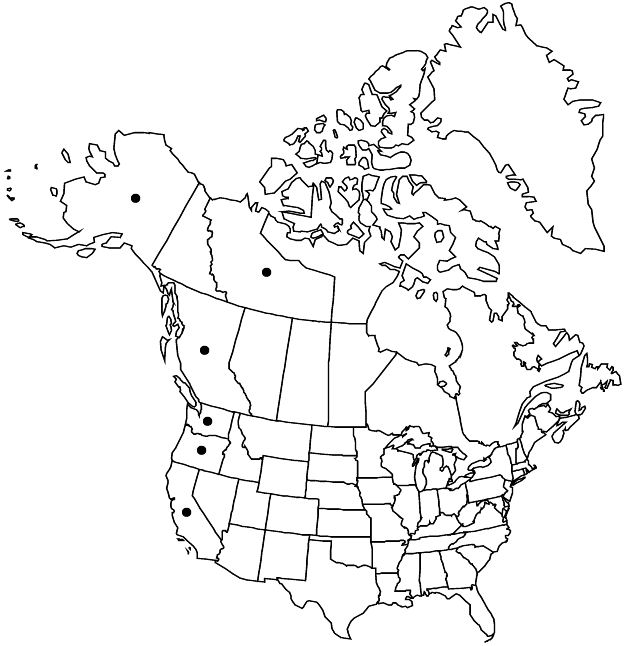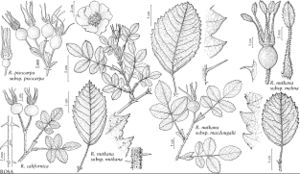Rosa nutkana subsp. nutkana
Shrubs, densely branched. Stems 10–30 (–40) dm, internodes 2–4 cm; prickles (distal stems and fertile branches) infrastipular, paired, erect, stout, rarely absent. Terminal leaflet margins usually 2+-serrate, teeth gland-tipped, abaxial surfaces glandular or eglandular. Inflorescences usually 1 (or 2) -flowered. Sepals: abaxial surfaces eglandular or (outer) stipitate-glandular. 2n = 42.
Phenology: Flowering Apr–Jul.
Habitat: Rocky coasts and bluffs, stream banks, edges of woods, roadsides
Elevation: 0–300 m
Distribution

B.C., Alaska, Calif., Oreg., Wash.
Discussion
The predominant rose of coastal western North America, subsp. nutkana is found in the Vancouverian Floristic Subprovince west of the Coast-Cascade Mountains from Alaska and Northwest Territory to California. In stream passes through the coastal mountains, intergrades occur between the coastal subspecies and the interior subsp. macdougalii, particularly along the Fraser and Skeena rivers in British Columbia and the Columbia River between Oregon and Washington. Populations directly on the coast are often heavily armed, with exceptionally large, flattened prickles.
Selected References
None.
Lower Taxa
"dm" is not declared as a valid unit of measurement for this property."dm" is not declared as a valid unit of measurement for this property."dm" is not declared as a valid unit of measurement for this property.
